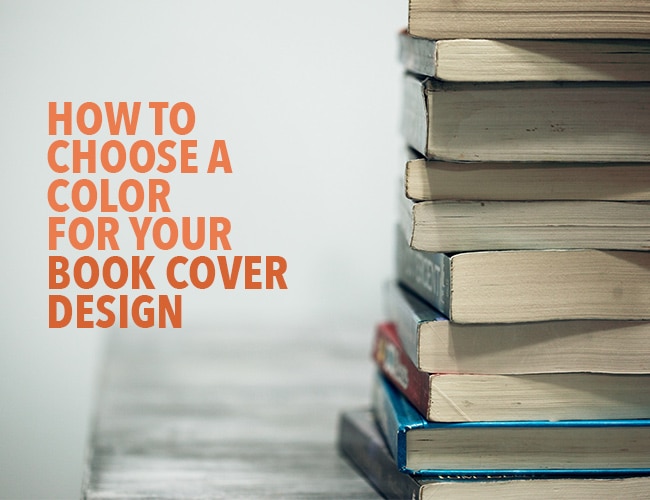No matter how much the adage “Don’t judge a book by its cover” is trotted out, we all do it. It’s in our nature to make quick assumptions about things, especially when we have literally millions of books to choose from. And it's easy to make quick judgements based on book cover design.

Think about walking through your local bookstore or perusing your library’s shelves. You’re looking at spines, and only spines, most of the time. Then one book stands out. You pull it from the shelf and give the cover a read.
Why did you choose that book, in particular? Most likely, the color stood out to you.
Book Cover Design: What Colors Convey
Color theory has long been studied and applied in everyday situations, from the best colors to paint a baby’s room to color schemes on a website.
Book cover designers fall into the same patterns when choosing a color for covers. They know you’re choosing from a ton of books and their goal is to get as much information across about that particular book in the millisecond it takes you to glance at it. You might not realize it, but the color of the book is what draws your eye or makes you skim right past.
Here are the main book cover design colors and what they are telling you without you realizing:
Blue is the color of mental engagement. It promotes trust and calm. This is the color you’ll see on covers for political memoirs and nonfiction as well as more thought-provoking fiction.
White is well-known as a symbol of purity. White covers suggest a straight-forward, simple book.
Black is obviously very serious and signifies mystery and death. You’ll find black covers in the horror, thriller, and mystery genres.
Red is angsty. It’s bold and conveys feelings of passion, excitement, and aggression. This is another color you’ll find in horror and thrillers, but it’s also good for romance novels if you go with a softer red.
Yellow is a happy color, associated with well-being and peace. It’s great for lighter, feel-good books and self-help. A bolder yellow can be used for motivational books.
Green is obviously associated with nature, and therefore makes a good fit for high fantasy novels or environmental nonfiction. This is one of the least-seen colors for book covers, though.
In general, darker colors promote seriousness and calm, while “hotter” colors like reds and yellows give off energy and happiness. Bolder colors suggest bravado and intensity, while pastels express a lighter, friendlier touch.
If you’re wanting to trick your readers or stand out in a crowd of books in the same genre as yours, you could try going with an unexpected color. For instance, you’ll see yellow every so often in the thriller and horror genres, just because of the juxtaposition with the natural emotion the color gives. It’s trickery to throw you off the scent.
Want to dive deeper into color theory and see what colors go best together? Check out this resource from Canva: The Color Wheel and Color Combinations.
Look at Everyone Else
Study your genre before you choose a cover color. There are plenty of resources online to find the latest trends in book colors. (Just Google “book cover trends 2018.” Pink is back, by the way.)
You don’t have to fall in line with every other book cover design, but keep in mind you’re conveying certain aspects about your book to your reader just by the cover color alone. You don’t want them to walk past your book because they thought it was a different genre than what they were looking for.
Even if you’ve hired a designer for your cover, it’s still good to keep up with the current trends. This will help your designer know which way to go. And it’s just good business.
Color is just one element of a winning book cover design. Want more tips on how to create the perfect cover (and sell more books)? Check out Joslyn Chase’s article here.
Have you ever noticed what book covers catch your eye? What color is most likely to get you to take a closer look? Let me know in the comments!
PRACTICE
Today I want you to take a look at a color wheel and choose a color. Think about how that color makes you feel and what it reminds you of. Turn that into a scene, whether it’s fiction or memoir. Write for fifteen minutes.
Then share your writing in the comments and give your fellow writers some feedback!
Sarah Gribble is the author of dozens of short stories that explore uncomfortable situations, basic fears, and the general awe and fascination of the unknown. She just released Surviving Death, her first novel, and is currently working on her next book.
Follow her on Instagram or join her email list for free scares.



0 Comments